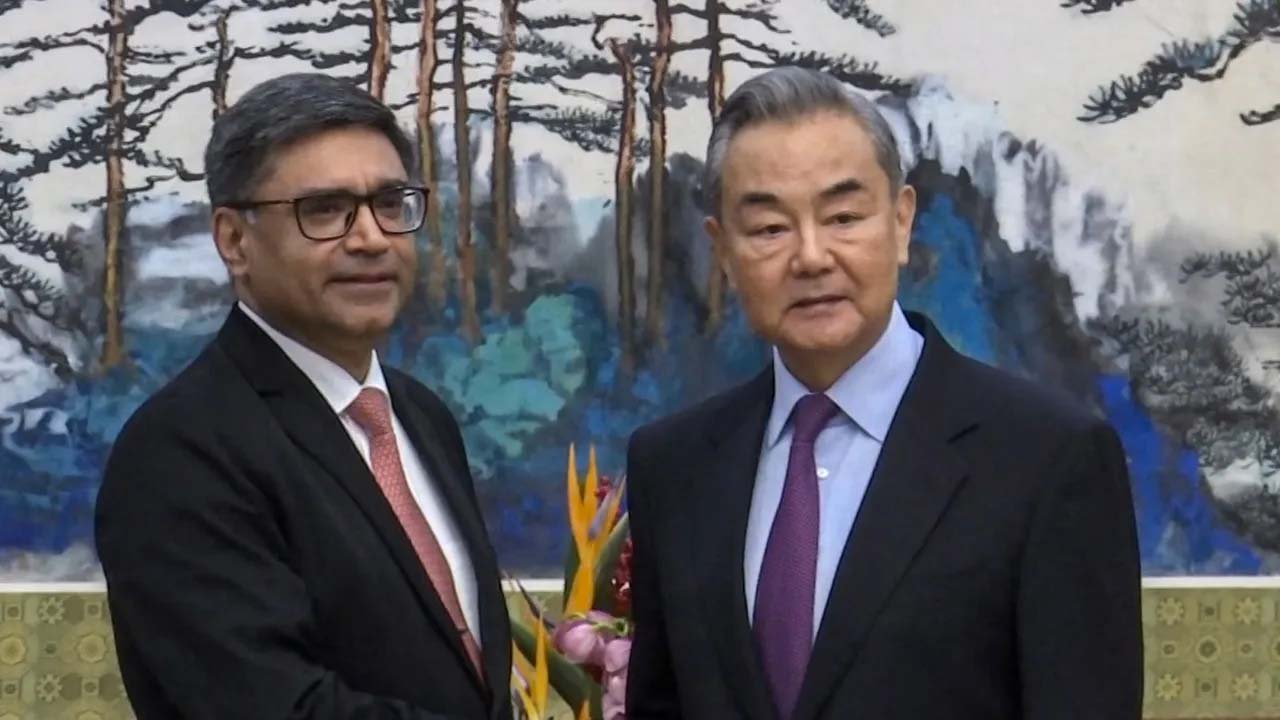BEIJING, Jan 28: China emphasized the importance of effectively managing differences and fostering stable India-China relations during recent discussions with Foreign Secretary Vikram Misri. The talks underscored decisions to reinstate the Kailash Mansarovar Yatra and direct flights between the two nations.
Foreign Secretary Vikram Misri, who arrived on Sunday for a two-day visit, engaged in talks with Chinese Foreign Minister Sun Weidong on Monday, aiming to stabilize and revive relations that have been stalled for over four years due to the military standoff in Eastern Ladakh.
Misri, previously the Ambassador to Beijing, met with Sun, who once served as the envoy to Delhi.
The External Affairs Ministry published a press release on Monday indicating that both parties conducted a thorough review of the current state of India-China bilateral relations and agreed to initiate several people-focused measures to “stabilize and rebuild ties”.
In a statement released in Mandarin on Tuesday, the Chinese Foreign Ministry highlighted that the dialogue concentrated on promoting the execution of key agreements achieved by leadership during the Kazan meeting on the sidelines of the BRICS summit last year. They discussed strategies for enhancing and developing China-India relations.
The talks revealed a shared consensus between both sides, particularly regarding the resumption of direct flights, the Kailash Mansarovar Yatra for Indian pilgrims, and a meeting of the India-China Expert Level Mechanism to discuss renewing the sharing of hydrological data concerning trans-boundary rivers.
During the discussions, China stressed the necessity for both sides to prioritize the fundamental interests of China and India and maintain a strategic and long-term perspective on bilateral relations, the readout stated.
It was advised that both nations should actively promote dialogue, exchanges, and practical cooperation with a sincere and constructive attitude, positively influence public opinion, build trust, resolve misunderstandings, properly manage differences, and support the development of ties on a healthy and stable path.
The two sides engaged in a candid and comprehensive exchange of views on matters of mutual interest.
Addressing the consensus reached in the discussions, India expressed its readiness to wholeheartedly support China’s leadership as the rotating president of the Shanghai Cooperation Organisation (SCO) this year and to actively participate in various activities organized by Beijing under the SCO framework.
Moreover, both sides agreed to leverage bilateral and multilateral opportunities for extensive interactions at all levels, strengthen strategic communication, and enhance political mutual trust.
They also mutually decided to commemorate the 75th anniversary of diplomatic relations between China and India this year, fostering exchanges through media, think tanks, track two dialogue, and other cultural initiatives.
Additionally, direct flights between the two nations are set to resume, and measures will be taken to facilitate personnel exchanges and the movement of journalists between the countries.
The encouragement of media exchanges raised hope for the resumption of journalist operations from both countries to reopen their bureaus after a two-year hiatus.
Presently, only the PTI bureau is authorized to operate from Beijing.
Furthermore, both sides agreed to facilitate the return of Indian pilgrims to the Kailash Mansarovar Yatra in China’s Tibet Autonomous Region this year, with relevant arrangements to be negotiated promptly.
They also committed to continuing cooperation on cross-border rivers and maintaining communication by convening a new round of expert mechanism meetings as soon as possible.
Established in 2006, the Expert Level Mechanism (ELM) addresses various issues related to trans-boundary rivers, under which China shares hydrological information regarding the Brahmaputra and Sutlej rivers with India during flood seasons.
India has expressed concerns about China’s plan to construct the world’s largest hydropower dam on the Brahmaputra, also known as the Yarlung Zangbo in Tibet.
During his visit, Misri also met with Foreign Minister Wang Yi and Liu Jianchao, Minister of the influential International Department of the ruling Communist Party of China. (PTI)


Leave a Reply